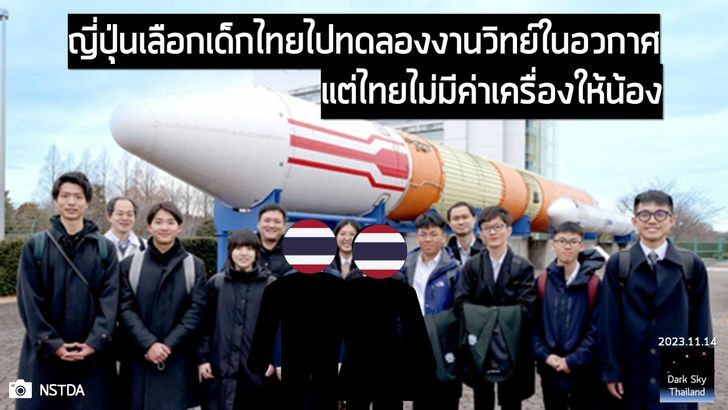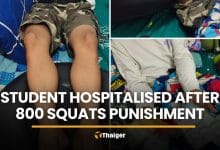Cosmic cut-off: Thai student’s stellar space science event opportunity eclipsed by budget black hole

A Thai student selected by Japan for a space science event has missed the opportunity due to the Thai government‘s inability to fund the airfare.
The National Science and Technology Development Agency’s (NSTDA) SPACE Education programme highlighted the situation. The Japanese programme, known as JAXA Asian Try Zero G, has conducted similar space science events for several years, inviting young students from ASEAN countries to compete in space experiments.
The Japanese strategy includes both hard power and soft power. Hard power encompasses global-level technology and economy, while soft power involves cultural diplomacy like cartoons, movies, music, science, and education. This is to attract foreigners to their scientific and technological prowess and provide scholarships for further studies.
One aspect of Japan’s science and technology diplomacy invites ASEAN youth to compete in space experiments, known as JAXA Asian Try Zero G. This sees Japanese astronauts perform the tests in the Japanese section of the International Space Station (ISS), and then livestream the event. This initiative has been conducted for several years.
However, the disappointing news today comes from the Facebook page of a certain Mr. Title, owner of the page SpaceTH.co. A Thai student who had applied and been selected as the national representative for the end of January next year will not be able to attend due to a lack of funds for airfare, as the state does not have the budget.
Subsequently, Dr Jessada Denduangboripant, a lecturer in the Department of Biology at the Faculty of Science, Chulalongkorn University, shared the post and added that this is a real issue. The project organised by NSTDA is a competition to select groups of young people to come up with scientific project ideas for experiments in space.
Airfare budget
The chosen ideas get to be tested in Japan’s JAXA space station. However, the airfare budget to send the students has been cut, leading them to seek sponsors for airfare themselves, reported Sanook.
This is not the first time this has happened. Even in the previous KIBO project, where Thai students won an award, they had to find their airfare sponsors.
These children represent the country in terms of science, creating a reputation for the country and generating interest and awareness in science. The cost is not much and it should be manageable. He requested the senior officials of the Ministry of Science to help solve this problem.
Latest Thailand News
Follow The Thaiger on Google News:


























